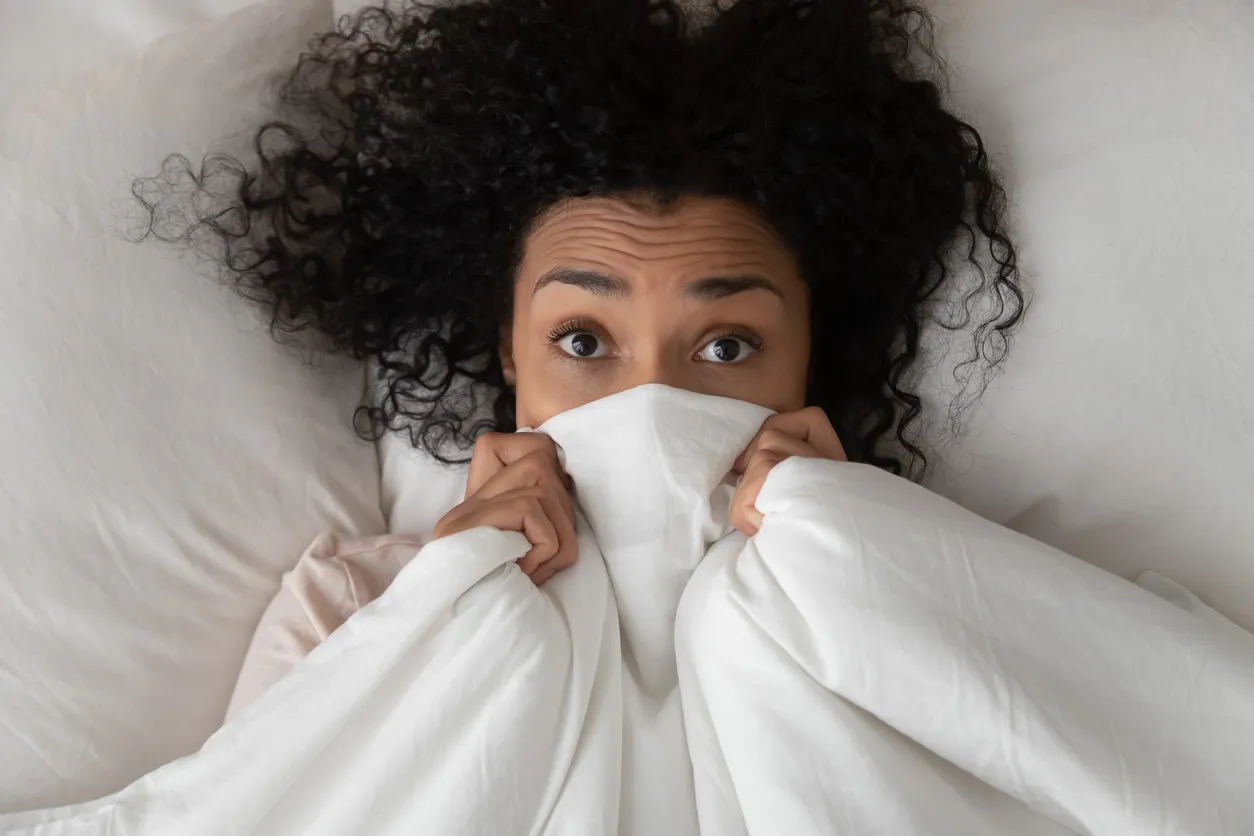9 Melatonin Side Effects to Watch Out For, Doctors Say

According to the Sleep Foundation, nearly 30 percent of American adults take melatonin as a sleep aid, and 88 percent of those who do say it helps them fall asleep faster. However, like all medications and supplements, there are plenty of melatonin side effects, and it’s important to weigh these potential risks against the benefits.
“People take melatonin supplements to regulate their sleep-wake cycles. It’s popular because it is perceived as a natural and relatively safe alternative to prescription sleep aids,” explains Raj Dasgupta, MD, medical reviewer for NCOA and ABIM Quadruple board-certified physician specializing in internal medicine, pulmonology, critical care, and sleep medicine. He says that while melatonin may be suitable for some people, “it definitely depends on the underlying disorder.”
“I would stress using it under medical supervision and exploring other sleep improvement methods first before using melatonin as a one-stop fix for sleep issues,” he notes.
Chris Mohr, PhD, RD, a fitness and nutrition advisor at Fortune Recommends Health, adds that melatonin is not a quick-fix solution and emphasizes that practicing good sleep hygiene should be your first approach.
If you do decide to take melatonin, it’s also a good idea to be aware of the possible side effects so you can alert your doctor if you notice them. Besides the side effects listed here, Mohr notes that “worsening sleep patterns are also a sign to stop” and that you should “talk to a sleep physician if you have any adverse effects.”
RELATED: 5 Side Effects of Taking Too Much Magnesium.
1
Daytime drowsiness

If you’re taking melatonin intending to feel more rested, you might be surprised to learn that some people experience daytime drowsiness while taking it.
“Melatonin encourages the onset of sleep, but the residual effects can linger into the next day. This can be dangerous if you operate heavy machinery or drive,” says Dasgupta. “It’s generally recommended to take melatonin 30 to 60 minutes before bedtime to minimize any lingering drowsiness. Talk to your doctor if any drowsiness persists throughout the day or impairs your regular daily activities.”
2
Headaches

Headaches are another possible side effect to watch out for—and Dasgupta says you should discontinue taking melatonin if your headaches are persistent.
“Melatonin can cause headaches in some people, possibly due to changes in brain chemistry or interactions with other medications. This is more common with higher doses,” the doctor explains. “Talk to your doctor if any headaches are severe, frequent, or don’t respond to over-the-counter pain relievers.”
RELATED: 11 Bedtime Routines That Will Help You Sleep Through the Night.
3
Dizziness

Dizziness is a less common side effect, but it can be concerning.
“It might be related to blood pressure fluctuations or how melatonin affects your nervous system. Talk to your doctor if any dizziness is severe, causes falls, or happens with other concerning symptoms like chest pain or difficulty breathing,” Dasgupta suggests.
4
Mood swings

Many people experience mood swings when their sleep is suffering, but Dasgupta notes that taking melatonin can produce a similar effect.
“Melatonin fluctuations can affect some people’s mood, leading them to feel irritable, depressed, or anxious,” he says, noting that this is more likely with high doses or long-term use.
RELATED: 7 Hidden Dangers of Taking Fish Oil Supplements, Doctors Say.
5
Confusion or disorientation

Because melatonin can cause fatigue or daytime drowsiness, it can also acutely affect cognitive function. “In rare cases, melatonin may cause temporary confusion or disorientation, especially in older adults.”
6
Vivid dreams or nightmares

Melatonin can help your body fall into a deeper sleep cycle, increasing REM sleep. Some experts say this may be why plenty of people who take the supplement experience vivid dreams or nightmares.
“Melatonin is a natural sleep hormone, and changes in its levels may lead to more vivid dreaming,” explains Mohr. “This is not necessarily harmful, but it can be disruptive. This side effect usually goes away with continued use. Make sure you see a doctor if the dreams are causing sleep disturbances or emotional distress.”
RELATED: Dietitian Shares 5 Healthy Late-Night Snacks That Can Help You Sleep.
7
Appetite changes

Mohr says it’s also not uncommon for people who take melatonin to experience changes in appetite—but he notes that the individual response may vary.
“Melatonin may suppress appetite in some people or cause increased hunger in others. This can disrupt healthy eating patterns,” he tells Best Life.
8
Stomach pain

Especially when taken in high doses, melatonin can cause stomach upset, including “nausea, cramps, or heartburn for some,” according to Mohr. “This is more likely to occur when taken on an empty stomach, so taking it with food may help.”
9
Potential interactions with supplements

Finally, melatonin is known to react with certain other medications, such as corticosteroids and medications that suppress the immune system. Similarly, “melatonin may interact with other supplements, such as St. John’s Wort or valerian root,” says Mohr.
Certain antidepressants and birth control pills can also increase your body’s natural production of melatonin. It’s important to talk to your doctor before combining melatonin with medications or other supplements.